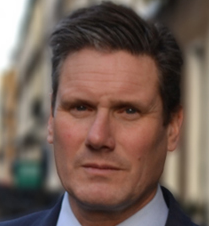STORY
As leaders from the 54 member states of the Commonwealth gather for their biennial summit in Samoa, the issue of reparations for the transatlantic slave trade has taken centre stage, sparking intense debate and calls for historical accountability. The legacy of slavery casts a long shadow over the Commonwealth, an organisation composed predominantly of former British colonies. Many member states in the Caribbean and Africa are demanding that Britain acknowledge its role in the abhorrent trade and provide financial compensation for the enduring social and economic consequences.
“The time for talk is over”, declared Prime Minister Gaston Browne of Antigua and Barbuda, a vocal proponent of reparations. “We are not asking for aid, we are demanding reparatory justice for the centuries of exploitation and brutality inflicted upon our ancestors.”
While the British government has expressed “deep sorrow” for its role in the slave trade, it has stopped short of offering a formal apology or committing to reparations. Prime Minister Rishi Sunak, while acknowledging the “abhorrent” nature of slavery, has argued that focusing on the past is less productive than addressing present-day challenges like climate change and economic development.
This stance has met with resistance from many Commonwealth leaders who argue that the past cannot be ignored. They contend that the systemic inequalities and economic disparities faced by many former colonies are a direct result of the slave trade and colonialism, and that reparations are necessary to address these historical injustices.
“Reparations are not just about money”, explained Prime Minister Mia Mottley of Barbados, another leading voice in the reparations movement. “They are about acknowledging the deep wounds of the past and taking concrete steps to heal them.”
The debate has exposed divisions within the Commonwealth, with some members, including Australia and Canada, expressing reservations about reparations. However, a growing number of countries are pushing for a formal acknowledgement of historical wrongs and a commitment to reparatory justice. The summit is expected to produce a declaration on the issue, though the exact wording remains a subject of intense negotiation. While a consensus on direct financial reparations seems unlikely at this stage, there is growing momentum for initiatives focused on education, historical research, and development programs aimed at addressing the lingering effects of slavery. The reparations debate at the Commonwealth summit reflects a broader global reckoning with the legacy of colonialism and slavery. As demands for historical accountability grow louder, the Commonwealth finds itself at a crossroads, grappling with its past while seeking to forge a more equitable future.
